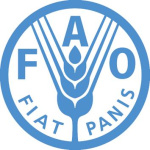- Industrie: Agriculture
- Number of terms: 87409
- Number of blossaries: 0
- Company Profile:
Established in October 1945 with the objective of eliminating hunger and improving nutrition and standards of living by increasing agricultural productivity, FAO coordinates the efforts of governments and technical agencies in programs for developing agriculture, forestry, fisheries, and land and ...
Reproduction that does not involve the formation and union of gametes from the different sexes or mating types. It occurs mainly in lower animals, micro-organisms and plants. In plants, asexual reproduction is by vegetative propagation (e.g., bulbs, tubers, corms) and by formation of spores.
Industry:Biotechnology
Resemblance among individuals related by descent; transmission of traits from parents to offspring.
Industry:Biotechnology
Respiration in which foodstuffs are partially oxidized, with the release of chemical energy, in a process not involving atmospheric oxygen, such as alcoholic fermentation, in which one of the end products is ethanol.
Industry:Biotechnology
Restitution of a mutant gene to the wild-type condition, or at least to a form that gives the wild phenotype; more generally, the appearance of a trait expressed by a remote ancestor.
Industry:Biotechnology
Restitution of a mutant gene to the wild-type condition, or at least to a form that gives the wild phenotype; more generally, the appearance of a trait expressed by a remote ancestor.
Industry:Biotechnology
Restricting the movement of (genetically engineered) organisms by arranging barriers to prevent them from growing outside the laboratory. Biological containment can take two forms: making the organism unable to survive in the outside environment, or making the outside environment inhospitable to the organism. The latter is rarely suitable for bacteria, which, in principle, could survive almost anywhere. Thus for bacteria and yeasts, the favoured approach is to mutate the genes in the organism so that they require a supply of a specific nutrient that is usually available only in the laboratory. If they get out, they then cannot grow. Making the environment unfriendly to the organism is partly a biological control, partly a physical one. Thus, some of the first genetically engineered rice strains were developed in England (which is too cold for rice to grow) and tried in the field in Arizona (where it is too dry). Biological containment may also involve the use of vector molecules and host organisms which have been genetically disabled such that they can survive only in the peculiar conditions provided by the experimenter and which are unavailable outside the laboratory.
Industry:Biotechnology
Ribonucleoside diphosphate (NDP) is one of the ribose-containing nucleosides with one or more phosphate groups linked to the 5´ carbon of the pentose sugar. When a nucleoside contains the sugar deoxyribose, the nucleotides are called deoxyribonucleoside mono-, di-, or tri-phosphates (dNMP, dNDP, or dNTP).
Industry:Biotechnology
